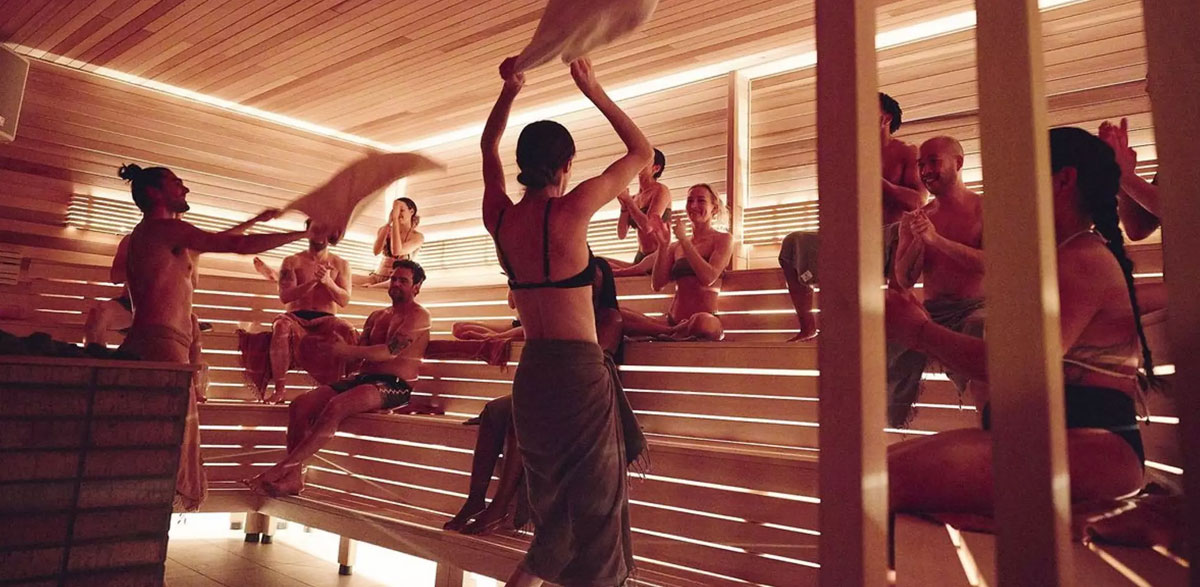The Social of Sauna
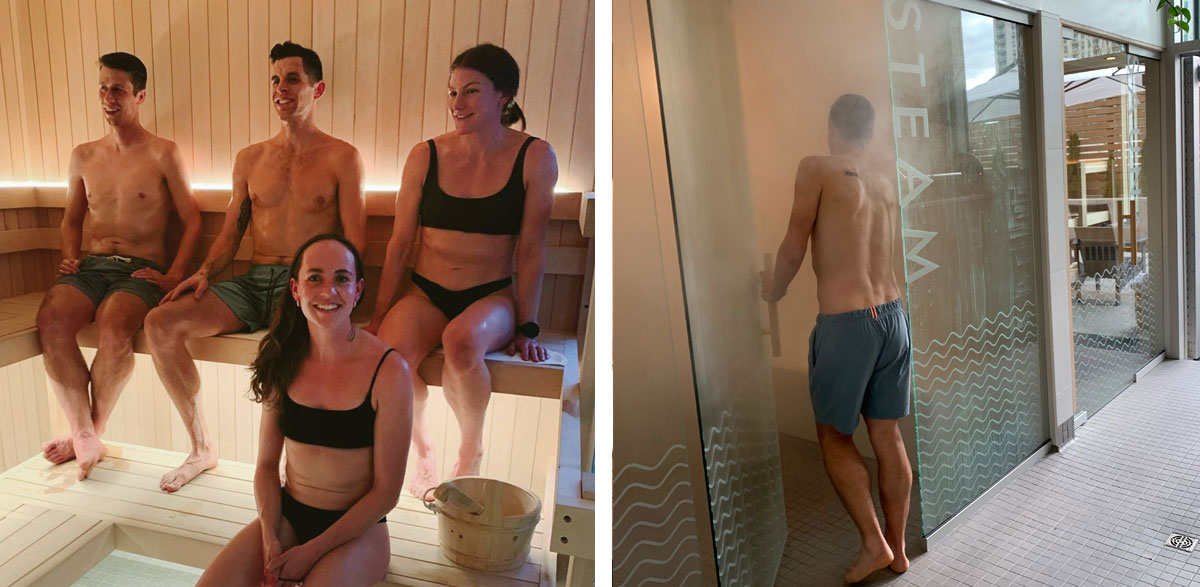
At RITUAL we love all things sauna and talking about the wellness benefits of sauna, cold plunge and contrast therapy. Here we are considering the SOCIAL aspect of traditional sauna practice as the world is taking note of the vital community benefits that come from sweating together.
Does Sauna = Happy? We Think So.
A staple of Finnish culture for centuries, the social aspect of sauna plays a significant role in its enduring popularity. The Happiness Report just came out and Finns are on top again. We believe that social times in the sauna and community are at the heart of it. Beyond the physical sweat and relaxation, the sauna is a space for people to gather, connect and bond. In recent years, with more Nordic spas and sauna houses popping up, North Americans are appreciating the camaraderie of sauna culture.
Sauna bathing is a democratic experience that fosters a feeling of belonging. In Finnish style, our RITUAL sauna circuit is where you gather and share space with people who enjoy sauna, welcoming each other and conversing. Or just enjoying a silent sweat! Whether introvert or extrovert, being around others in a mellow way can be healing.
Sauna has been called “the new pub,” a healthier alternative for meetups with friends.
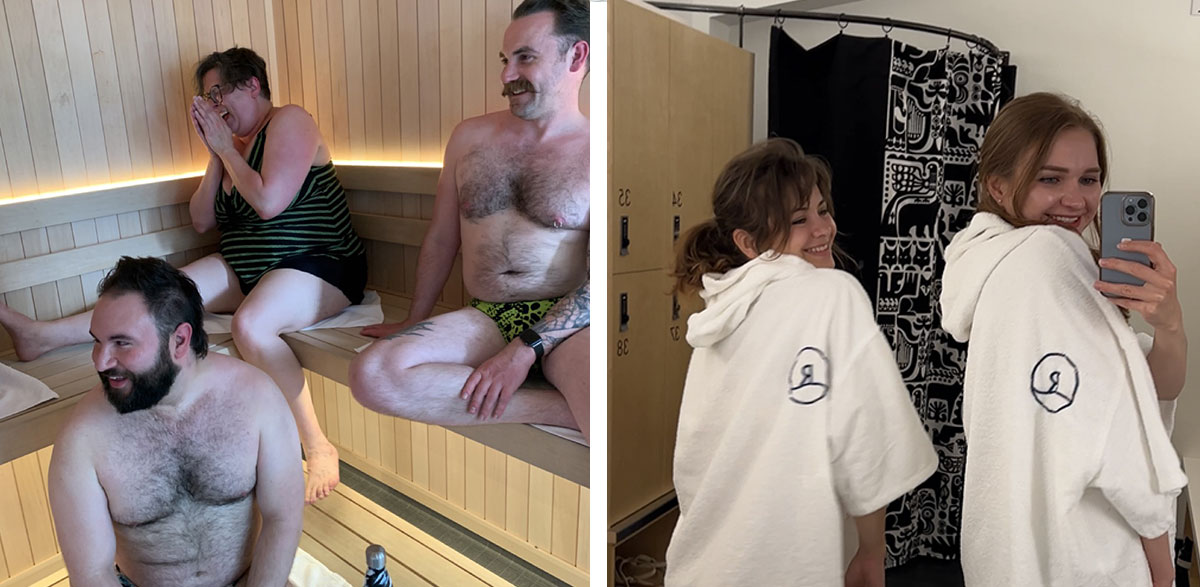
Sauna As It’s own International Language
Those who love sauna can tell you that sense of community extends globally. Many people seek out a saunahouse when visiting new cities and countries. Even if you don’t speak the local language, the culture of sauna is a welcoming and familiar place where you know what to do, what to expect, and can sit quietly by yourself or with friends, soaking in the culture of the new space you’re in.
When you visit a new sauna, be it in a different city, province, or country, it’s special to experience that same feeling of unspoken communal-being, in a place you’ve never been with people you’ve never met. Seeking out saunahouses while travelling (aka taking a #saunasafari) is a neat way to connect with a place’s local community as well as bring new breadth to your own wellness practice. Self-care is so often branded as a thing you do for yourself at home or in habitual spaces, but to engage in familiar rituals in an unfamiliar environment offers a fresh take that adds depth.
“The atmosphere in every saunahouse has its own flavour and vibe. It’s fun for me (as a designer and sauna lover) to explore how the combination of thoughtfully curated spaces and organic community connections grow these mini cultural hubs that feel universal and yet unique.” -Essery, RITUAL Nordic Host, #saunasafari traveller
Whether in a steamy quiet corner of a hammam-style sauna in Istanbul, in the large public saunas of Helsinki, among the cathedral-like spaces of Therme spa in the Swiss mountain town of Vals, or vibing out with breathwork at Othership in Toronto — you will be with others who know and understand what you’re doing and why you’re doing it.
Folks in the sauna are generally eager to hear and share their experiences at other spots, as well as compare notes on how they like to circuit. It’s satisfying to connect with strangers around habits that promote health and wellbeing in a format that’s inherently inclusive of each individual’s way of doing it. There’s no wrong way to sauna (except maybe setting it on fire) so really there is nothing to fear.
“Sauna culture, which can take place in homes or public places, involves much more than simply washing oneself. In a saua, people cleanse their bodies and minds and embrace a sense of inner peace. Traditionally, the sauna has been considered as a sacred space”– Unesco
Why Social Matters Now
This social aspect feels especially important in the aftermath of pandemic restrictions, and as we seek real social experiences in contrast to digital dependence and the anxieties those bring. We are also learning more how loneliness and social isolation can be linked to serious health conditions.
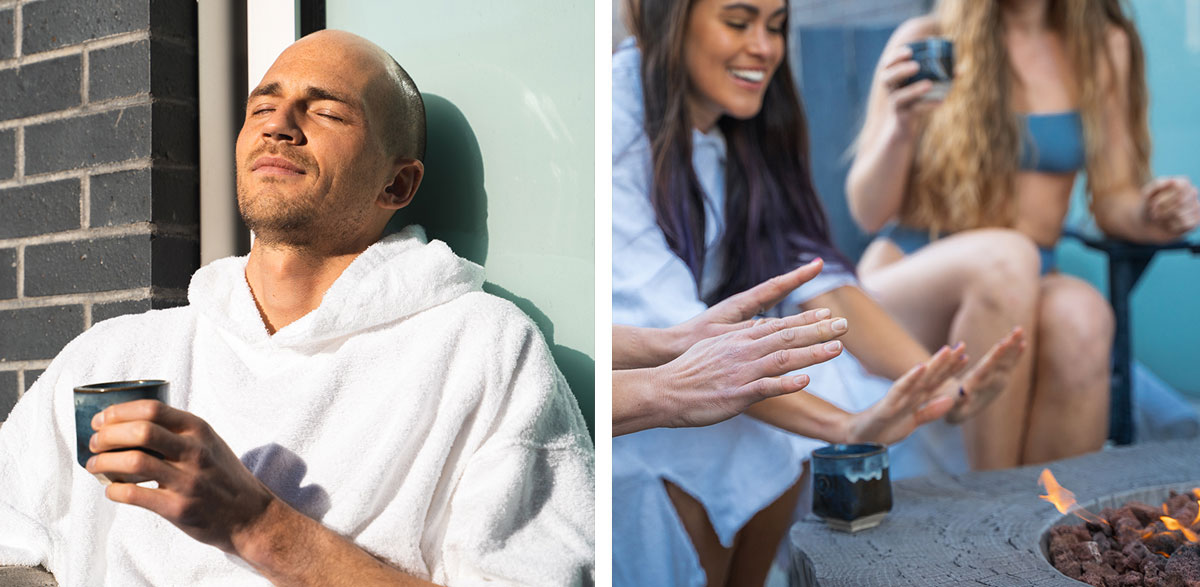
The psychosocial aspects of group activity from sauna are an important part of its health benefits:
“Social connection, sharing with friends and feeling a part of a community, as well as the personal nature of conversation that is fostered in the sauna, all play parts in the cultural validity of group sweating that has existed in so many cultures over time. In addition, for those cultures that promote nudity in the sauna, a sense of equality and openness exists that one does not normally experience in everyday life.” – The North American Sauna Society
This kind of relaxed connection happens organically at Ritual. Perhaps because the sauna offers a level playing field: you meet people from different backgrounds you wouldn’t otherwise necessarily encounter. But it isn’t limited just to this corner of the world. A recent article from The Guardian hints at these elements in the UK as well:
“With its unquestionable benefits, this is a movement with a life force of its own…You come out feeling like you’ve been on holiday, with a sense of space in your mind. Sweating has its own release and calms the thoughts. It’s like sitting in a pub, it liberates you, and you end up having the loveliest chats.” – The Guardian
There have been studies about how spending social time in a sauna enables us to connect more deeply with people around us. In fact, one study claims that men who sweat together are more likely to co-operate together afterwards.
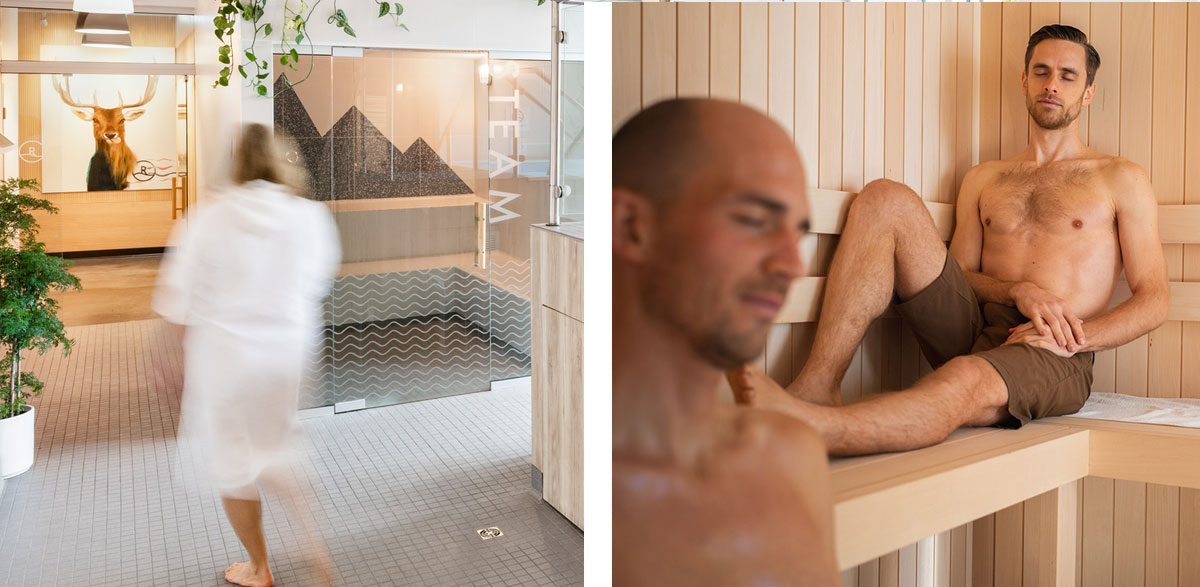
“We call that ‘sauna head’. It makes you go into a slightly meditative state and you lose your edges, your ego dissolves. Time disappears.” – The Guardian
How to Be Social (When You’re Not Actually Social)
When you visit RITUAL Nordic Spa you may wonder what to expect. While spa time can often be associated with quiet, at RITUAL, we follow the Finnish tradition where conversation is allowed and encouraged. Everyone in the sauna is equal and social status is forgotten.
Are there any rules? Not really, but here are a few suggestions from a Finnish Travel blog: “A sauna visitor can initiate a discussion with anyone. You can have relaxed small talk with strangers or discuss even politics or religion if you know the others well. Avoid talking about your job. The most important rule is to respect others even though you may disagree with them. If you do not like talking with strangers, staying quiet is perfectly fine too. However, it’s always nice to greet people when entering a small sauna where there are only a few people inside.”
And if you’re still not sure how to start a conversation in the sauna without feeling weird, sometimes a smile, or asking if other guests want more water on the rocks (löyly) is enough to break the tension. Even just sitting there silently can deliver a social moment.
As a recent RITUAL guest put it:
“You know I didn’t talk to anyone today in the sauna. I wasn’t feeling social, but I was glad other people were chatting. I felt like I was part of something nice.”
When you think about it, sauna is this kind of wonderful practice where, just by nature of being inside a sauna, you are ‘sauna-ing’. You’re already doing the thing. The rest of how you spend your time in there is up to you. Whether you’re catching up with friends, chatting with strangers, or taking some quiet time with some top-shelf löyly, you’re showing up to your sauna practice all the same. That is what makes sauna culture equalizing and accessible to everyone and why it generates a (literally) warm feeling of camaraderie.
And what if you do get chatting and the chatting gets too loud or the opinions get too heated? The best part is that it’s never considered rude to leave the sauna and come back later. Besides, it’s hot in there naturally. That’s the point. And the cold plunge pool is calling.
